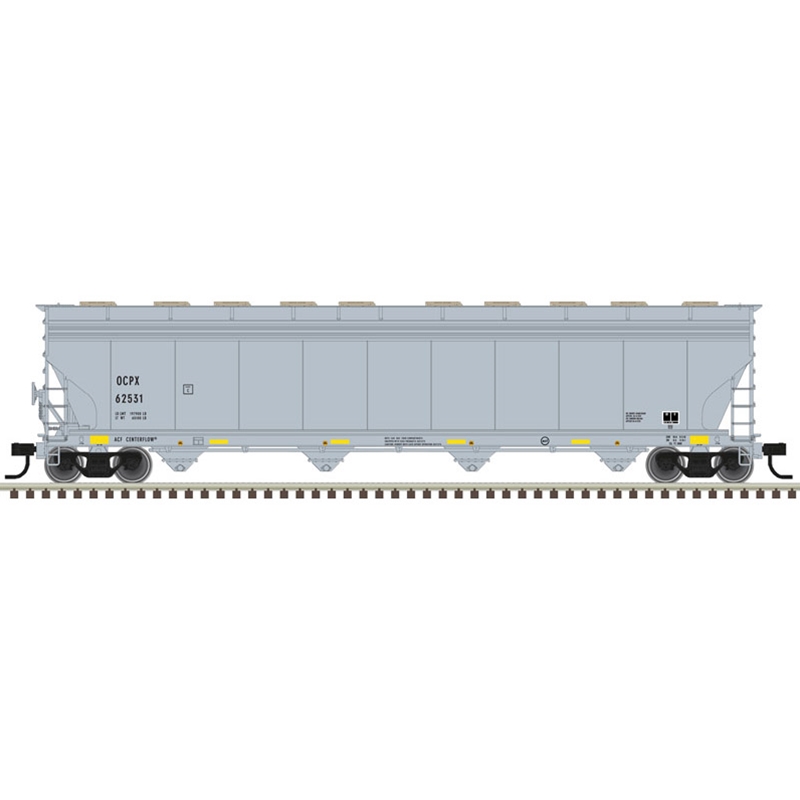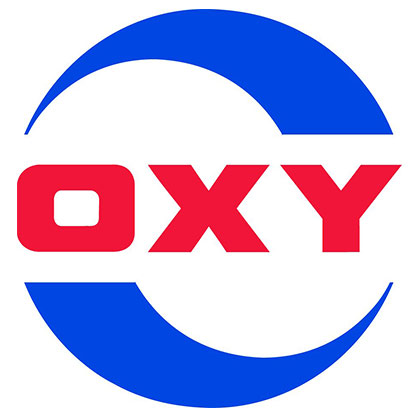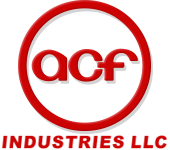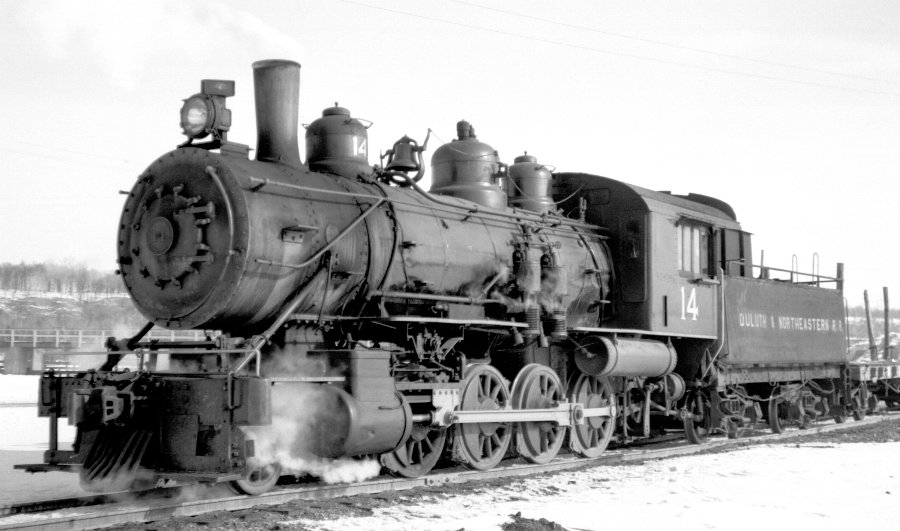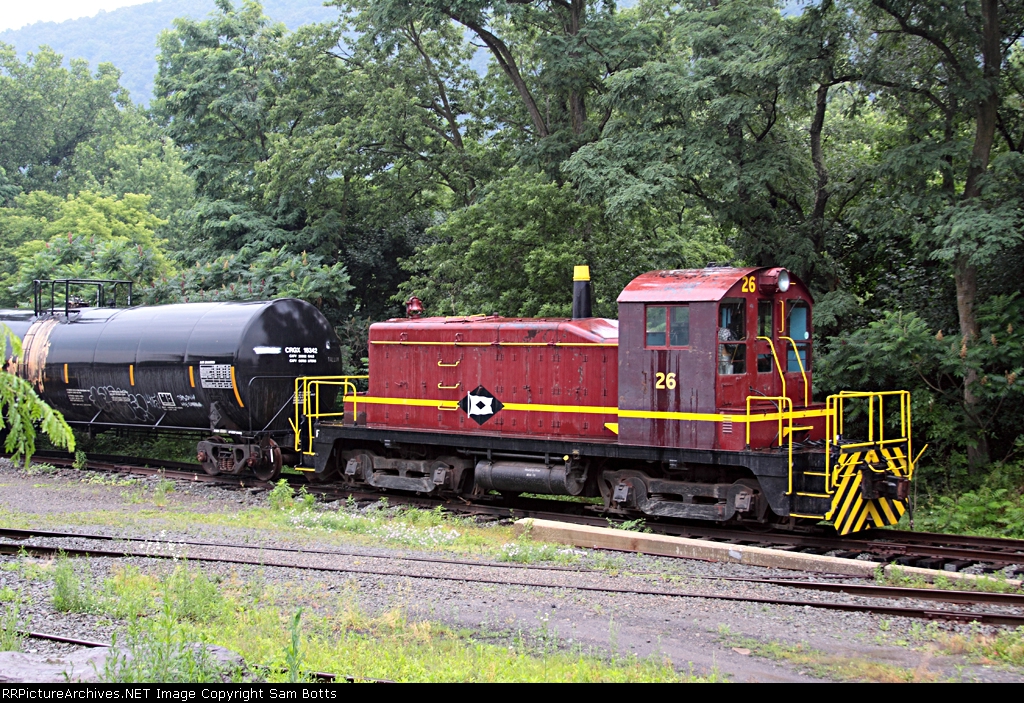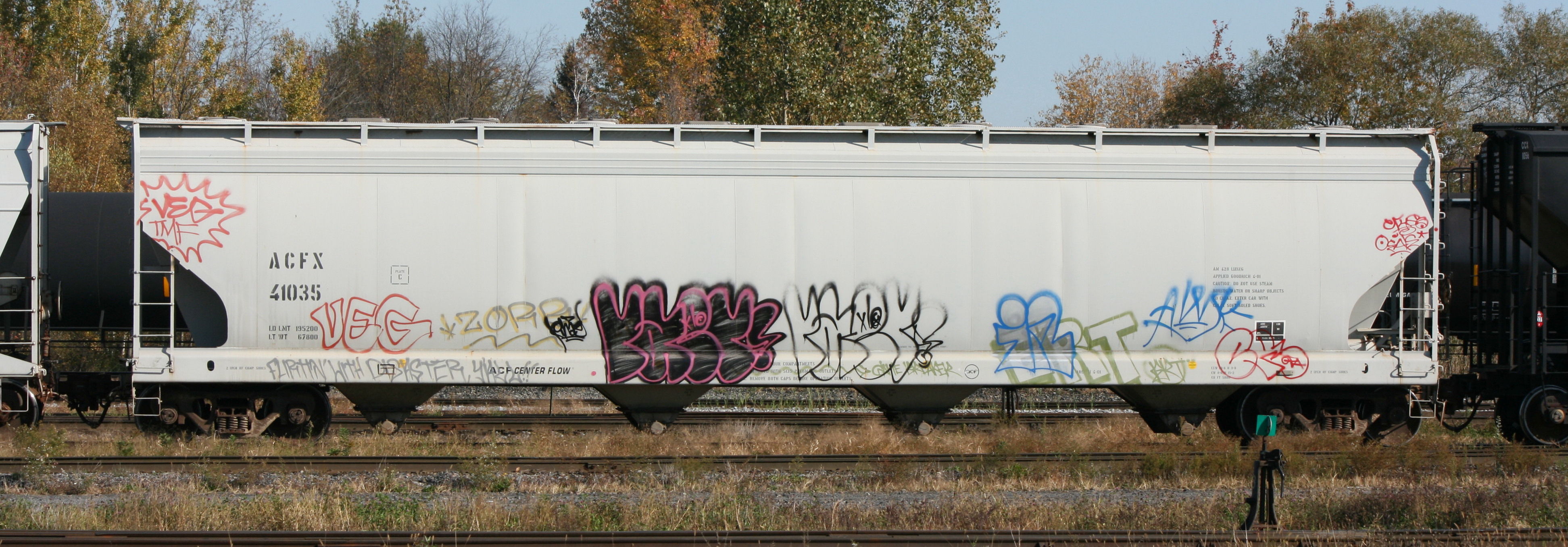Model Information: This model was introduced by Atlas in July of 2008. It features: Nine full-width panel body with ten weld seams;
Etched metal roof walks;
Ten 20" hatches and Pneumatic outlets (5800 Plastics);
Transverse mounted air reservoir;
Continuous hatch and gravity outlets (5748 Grain);
100-Ton Roller Bearing Trucks.
The same body is used to represent both the ACF 5800 plastics hopper as well as the ACF 5748 Grain hopper.
The same body is used to represent both the ACF 5800 plastics hopper as well as the ACF 5748 Grain hopper.
Prototype History: The 5800 cubic foot covered hopper was introduced in the early Seventies for transporting bulk plastic pellets and the 5748 is specialized for grain. Since 1972 ACF has built nearly 15,000 cars of this family. Most of these were acquired by private companies including leasing companies, chemical companies, oil companies, and plastics companies.
Both types evolved from the earlier 5701 which was used for transporting grain and bulk plastic pellets. The 5800 was specialized for plastics whereas the 5748, also evolved from the 5701, has somewhat different internals specialized for grain loading and unloading.
Both types evolved from the earlier 5701 which was used for transporting grain and bulk plastic pellets. The 5800 was specialized for plastics whereas the 5748, also evolved from the 5701, has somewhat different internals specialized for grain loading and unloading.
Road Name History: Occidental Petroleum Corporation (often abbreviated Oxy in reference to its ticker symbol) is an American company engaged in hydrocarbon exploration in the United States, the Middle East, and Colombia as well as petrochemical manufacturing in the United States, Canada, and Chile. It is organized in Delaware and headquartered in Houston. The company is ranked 722nd on the Forbes Global 2000 and 220th on the Fortune 500.
In 2018, the company was the 9th largest petroleum producer in Texas.
In 2018, the company was the 9th largest petroleum producer in Texas.
Brand/Importer Information: In 1924 Stephan Schaffan, Sr. founded the Atlas Tool Company in Newark, New Jersey. In 1933 his son, Stephan Schaffan, Jr., came to work for his father at the age of sixteen. Steve Jr. built model airplanes as a hobby and frequented a local hobby shop. Being an enterprising young man, he would often ask the owner if there was anything he could do to earn some extra spending money. Tired of listening to his requests, the hobby-store owner threw some model railroad track parts his way and said, "Here, see if you can improve on this".
In those days, railroad modelers had to assemble and build everything from scratch. Steve Jr. created a "switch kit" which sold so well, that the entire family worked on them in the basement at night, while doing business as usual in the machine shop during the day.
Subsequently, Steve Jr. engineered the stapling of rail to fiber track, along with inventing the first practical rail joiner and pre-assembled turnouts and flexible track. All of these products, and more, helped to popularize model railroading and assisted in the creation of a mass-market hobby. The budding entrepreneur quickly outgrew the limitations of a basement and small garage operation. Realizing they could actually make a living selling track and related products, Steve and his father had the first factory built in Hillside, New Jersey at 413 Florence Avenue in 1947. On September 30, 1949, the Atlas Tool Company was officially incorporated as a New Jersey company.
In 1985, Steve was honored posthumously for his inventions by the Model Railroad Industry Association and was inducted into the Model Railroad Industry Hall of Fame in Baltimore, Maryland. In addition, Steve was nominated and entered into the National Model Railroad Association Pioneers of Model Railroading in 1995.
In the early 1990s, the Atlas Tool Company changed its name to Atlas Model Railroad Company, Inc.
In those days, railroad modelers had to assemble and build everything from scratch. Steve Jr. created a "switch kit" which sold so well, that the entire family worked on them in the basement at night, while doing business as usual in the machine shop during the day.
Subsequently, Steve Jr. engineered the stapling of rail to fiber track, along with inventing the first practical rail joiner and pre-assembled turnouts and flexible track. All of these products, and more, helped to popularize model railroading and assisted in the creation of a mass-market hobby. The budding entrepreneur quickly outgrew the limitations of a basement and small garage operation. Realizing they could actually make a living selling track and related products, Steve and his father had the first factory built in Hillside, New Jersey at 413 Florence Avenue in 1947. On September 30, 1949, the Atlas Tool Company was officially incorporated as a New Jersey company.
In 1985, Steve was honored posthumously for his inventions by the Model Railroad Industry Association and was inducted into the Model Railroad Industry Hall of Fame in Baltimore, Maryland. In addition, Steve was nominated and entered into the National Model Railroad Association Pioneers of Model Railroading in 1995.
In the early 1990s, the Atlas Tool Company changed its name to Atlas Model Railroad Company, Inc.
Item created by: CNW400 on 2019-11-27 13:03:01. Last edited by CNW400 on 2020-06-03 17:22:26
If you see errors or missing data in this entry, please feel free to log in and edit it. Anyone with a Gmail account can log in instantly.
If you see errors or missing data in this entry, please feel free to log in and edit it. Anyone with a Gmail account can log in instantly.


